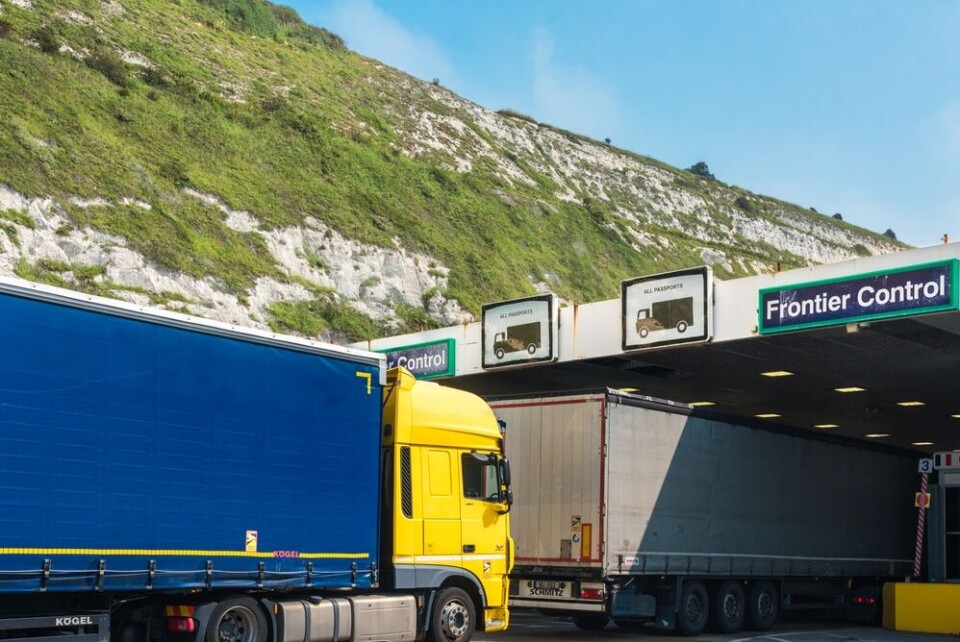-
Pistes closed, confinement orders: Alpine resorts deal with avalanche risk
Increased snowfall this weekend may cause further closures as busy school holiday season continues
-
Former French Interior Minister announces 2027 presidential candidacy
Bruno Retailleau recently asked prefectures to be tough on immigration
-
Ryanair axes Dublin-Rodez route but London connection retained
“We are disappointed but had no say in decision” say airport authorities
How incorrect French customs checks led to €40bn loss for UK
Mafia gangs have managed to dodge billions in excise duty due to allegedly less-than-thorough checks at French customs

The UK has allegedly missed out on €40 billion in customs charges for alcohol over three decades, due to criminal gangs and insufficient border searches in France, it has emerged.
A court in Lille sentenced 40 perpetrators to jail time, house arrest, and €4 million of fines earlier this year, in connection with excise fraud.
The criminals were found to have engineered the payment of excise duty - a tax on beer, wine and spirits - at Dunkirk customs in France, rather than paying across the Channel in the UK as they should have done (as the drinks would go on to be sold in the UK).
Excise duty for imported spirits in the UK can be up to 50 times higher than that due in France.
Courts have only just become aware of the scale of the crime, which has been going on for several decades across Europe, largely perpetrated by mafia gangs.
And yet, the taxes collected in France have benefited the government’s coffers, as the Dunkirk regional customs office collected billions in taxes to which it was actually not entitled. British tax authorities are now thought to have missed out on up to €40 billion over 30 years.
‘Sneaking’ through the Channel Tunnel
The crime is said to go back to the creation of the Single Market in 1993, which removed internal borders in Europe and removed customs controls. The EU instead introduced a system of ‘suspended duty’, which required businesses to pay excise duty in the country of final consumption.
However, mafia bosses importing to the UK are then said to have found a way to pay this duty in France, as taxes were much lower on the European mainland. The taxes are then paid as if the alcohol was arriving in France, rather than being sent to the UK.
The shipments are then allegedly ‘snuck’ through the Channel Tunnel in lorries, each of which - illegally - have identical number plates.
The gangs get one of their lorries to the UK legally, by paying one set of legal excise duty for it in the UK. They then photocopy the legal paperwork, to create multiple illegal copies for the other lorries.
This means they only pay the fee per extra lorry in France (which, prior to 2012, was as low as €3,000), rather than the €24,000 per extra lorry that would have been required in the UK. The alcohol is then reportedly sent to small convenience stores in the UK, where many transactions are made in cash.
These ‘missing’ lorries are often referred to as ‘ghost lorries’ in the UK, and are estimated to cost the British government €1.2 billion per year.
‘Compromised duties’
It has emerged that customs officials in Calais - the main port through which the shipments are sent - allegedly rarely check the shipments in enough detail to identify the crime, even if the alcohol is from brands that are not sold in France, such as Oranjeboom or Stella UK.
Customs officers in France have often denied any wrongdoing, but a recent statement said that the administration is fully aware of the issue, and has since referred to the illegally-collected excise duties as “compromised”.
This has been seen as a tacit admission of poor searches, and a failure to check that lorries that were supposedly ending their journey in France were still in the country, and did not travel across the Channel.
France fighting back?
Yet, the crime has spread across Europe after the French Finance Ministry increased the excise charges from €3,000 to €8,000. Many of the criminals are thought to have now gone elsewhere, including Germany and Spain.
France has responded by increasing its checks and fines for businesses that it suspects to be operating illegally, or which have missed excise charges in the past, and some have accused it of becoming overzealous.
One man, Walter Charpentier - who is a transporter and warehouse owner of alcoholic beverages in Labourse, on the outskirts of Béthune (Pas-de-Calais) - has now said he has been sent a fine of €8.3 million for suspected involvement with fraudulent excise fees, but denies any wrongdoing.
His lawyer, Jean Pannier, told Capital.fr: “These accusations are totally spurious.”
The case has now been taken to Paris, rather than Calais, and all similar cases are being handled by Isabelle Braun-Lemaire, the national head of customs. The Finance Ministry has said it will continue to defend its customs employees, and denies any false claims of fraud or illegal excise collection.
Some major cases have taken investigators as far as Poland, Bulgaria, Cyprus, Belize, Dubai and Hong Kong; while at least four alcohol distributors in France - found to have sent tens of thousands of lorries across the Channel fraudulently - have been shut down.
Last year, then-Minister for Public Accounts, Gabriel Attal, skirted around the issue of past wrongful excise collection, simply saying that excise duty was a “complicated subject”.
So far judges in France have ruled that it is up to the wronged countries - such as the UK - to claim for the unpaid excise duties directly, and not against Dunkirk customs.
Related stories
Recap of post-Brexit rules for bringing items into France from the UK
How do we do customs declarations for goods for French second home?
How to fill out French customs form online for packages sent abroad
























